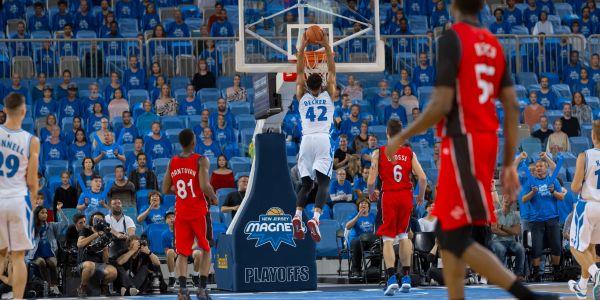
How can you take your game to the next level?
Basketball players spend hours in the gym taking hundreds of shots.
Football players hit the weight room and bench, squat, and dead lift to build physical strength.
Golfers tweak their mechanics to find just the right swing.
Extra practice and technique refinement help build an athlete’s confidence.
Yet, athletes often neglect one ingredient that is necessary for next-level performance, and that is the development of sound mental skills.
Developing technique and improving your physiological capacities lays the foundation of performance, but mental work is the element that takes your game higher.
For example, spending extra time taking shots outside of basketball practice can help you feel more comfortable with your shot. However, physical training won’t prevent game-time frustration when you start a game missing your first ten shots.
But, the mental skills of refocusing, relaxation, and emotional management will help you mentally recover, eliminate distractions, and help you rediscover your shot.
All the weight training in the world will not help an offensive lineman who loses his cool after being flagged for several holding calls during a football game. Learning how to manage anger and communicate with his teammates will help him regain his poise and figure out a better blocking strategy.
Constantly tweaking mechanics will not help a golfer manage anxiety during a major tournament. However, learning to handle pressure and stay confident throughout a round will help the golfer perform at their peak.
Next-level performance requires next-level training, and that training starts with mental training. While many athletes fall well short of their potential, you can gain an advantage by making mental training an equal focal point along with your physical training.
Jewell Loyd was selected first overall by the Seattle Storm in 2015. Lloyd’s consistency through nine WNBA seasons is not an accident. Llyod has made a conscious effort to build a solid mental game, and that mental game has been a difference-maker.
Lloyd works with a performance coach, and the results are visible.
LLOYD: “I just wanted to unlock other aspects of my thinking and have a way to just figure out my thoughts, emotions and processing things. Talking with [my performance coach] allows me to stop whatever I’m doing for an hour a day to just think and be still, which is nice for someone like us. Athletes are always going, so it’s nice to reflect and really think about where you are and where you want to be and give yourself a little bit of grace.”Llyod not only views her sessions as a benefit but also as a necessity.
Remember, practice helps with confidence, but mental skills help you avoid or deal with potential sticking points that can occur throughout a long, grueling season.
Think back to some of your best athletic performances. Could stronger confidence, improved focus, or ability to manage pressure have helped you perform even better or contributed to playing at that level throughout the season?
Even elite, skilled athletes work on their mental skills. Mental skills take you from good to great and from great to elite.
Related Sports Psychology Articles
- The Mindset to Perform at a Higher Level
- Having Fun While Performing at Your Best
- The Importance of Mental Toughness
*Subscribe to The Sports Psychology Podcast on iTunes
*Subscribe to The Sports Psychology Podcast on Spotify
Download a free sports psychology report to improve your mental game!
Learn more about our one-on-one mental game coaching.

The Relaxed Athlete
You can possess all the physical talent in the world, the best equipment money can buy, and train harder or longer than anyone else in your sport or on your team, but if self-doubt enters your mind prior to competition, you simply will not realize your true potential in sports.
The Relaxed Athlete” audio and workbook program teaches you mental strategies to develop a focused and confident pregame routine for a poised and relaxed mindset. Learn how to get your mind right by overcoming pregame anxiety and worry.
